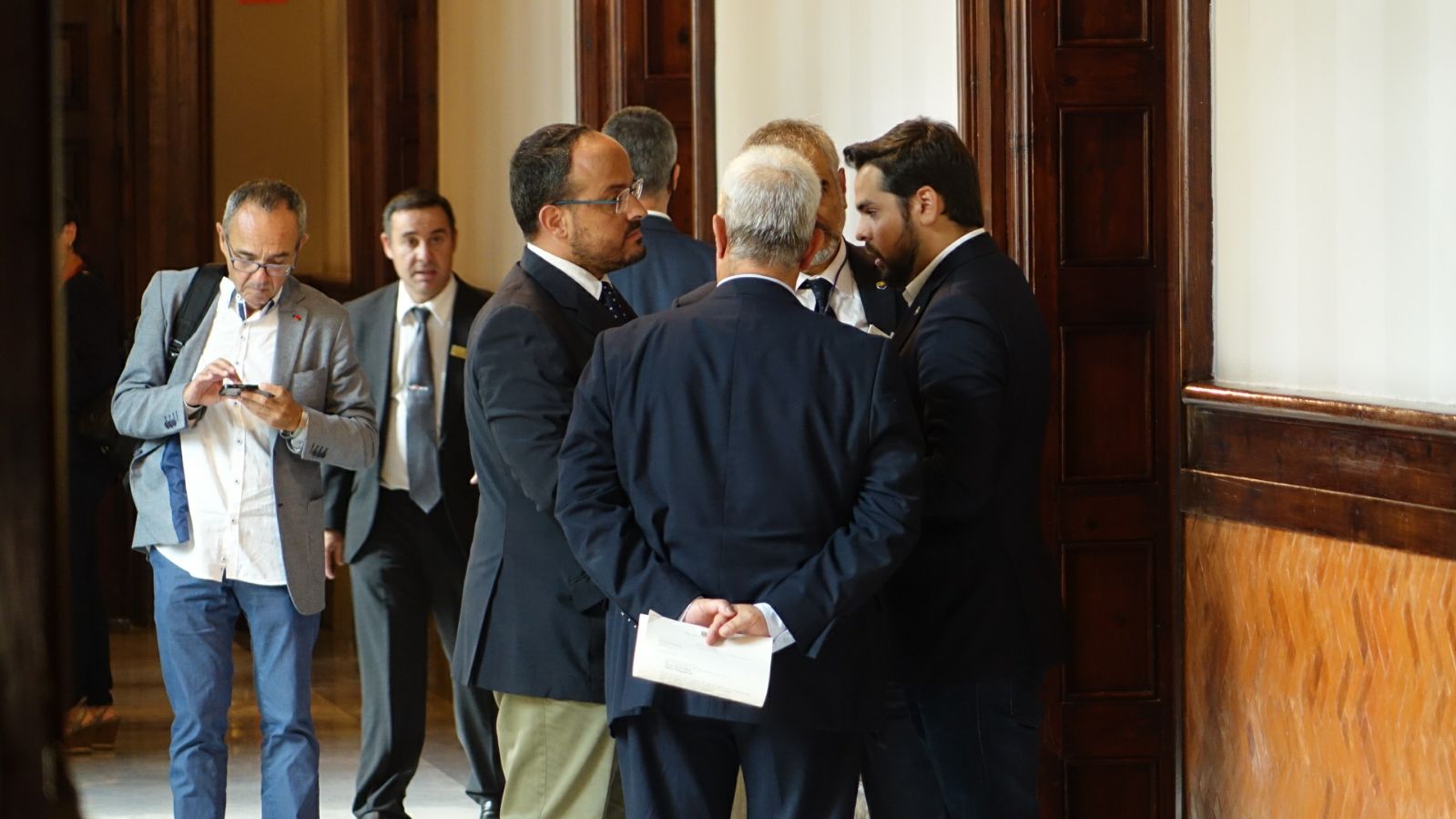The plenary assembly of the Catalan Parliament has had to be suspended twice today. The first point on the agenda was the cession of control to the president and the government, but Junts pel Sí (Together for Yes) requested a change to the agenda to include the Referendum Law proposal calling on article 81.3 of the chamber's rules. The bill had earlier been accepted for consideration by the Board of the Parliament. From that point on, Ciudadanos (Citizens), PSC (Socialists' Party of Catalonia) and PP (Popular Party) started working to try to paralyse any advance by the law to win time.
For this they resorted to filibustering. That's the name for a technique which, by blocking parliamentary debate, aims to block the approval of laws or legislative acts, generally using long speeches. In this case, Ciudadanos, PSC and PP opted to stretch the regulations of the Parliament and to make use of all the resources at their disposal.
Specifically, the three unionist parties presented separately requests for reconsideration to the Board of the Parliament about the decision to admit the Referendum Law, something which happened this morning before the plenary assembly started. As they were presented individually, the Board had to meet three times to evaluate, and reject, the petitions.
On the other hand, once the Board had accepted the proposed Referendum Law for consideration, PSC registered a request for a judgement from the Council of Statutory Guarantees, a procedure that they will repeat with the Law of Transitional Jurisprudence. Two hours later, PSOE registered the same claim in the Council's Register itself. They have also asked Spain's Constitutional Court for support.
Another way in which the pro-union parties (and also CQSP, Catalonia Yes We Can) tried to sabotage the advance of the bill was its publication in the Parliament's Official Gazette. According to the opposition parties, the publication is invalid because the secretary general has not accepted it. Sources from Junts pel Sí argue that the secretary does not have to sign anything, that it's automatic.
Also in front of the Board was the warning signed by the senior lawyer and the secretary general of the Parliament that the members of the Board could be considered criminally responsible for processing the disconnection laws. The note maintains that the two laws have a "direct relationship" with other resolutions formerly approved by the Parliament that have been suspended by the Constitutional Court.
Why does unionism want to win time? Because there is also activity in Madrid. The Constitutional Court's plenary assembly is in session. Before anything else, the high court will have to study the call for its recusal made this Wednesday morning by Carme Forcadell, president of the Catalan Parliament, claiming that the magistrates are not impartial.

